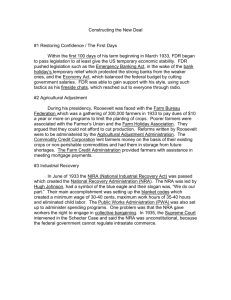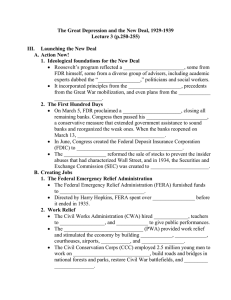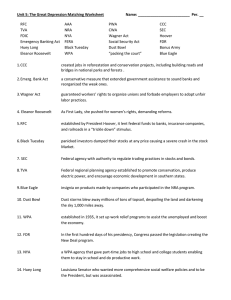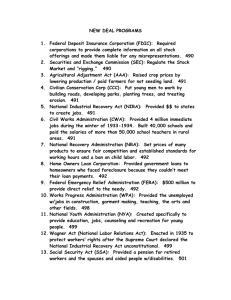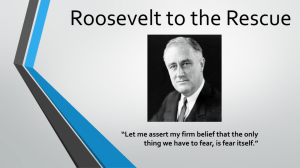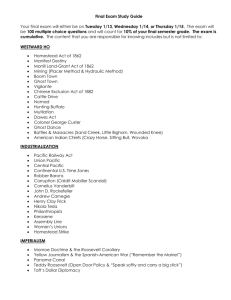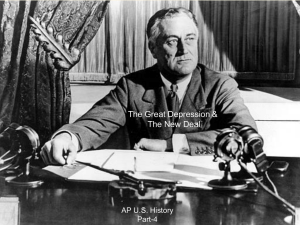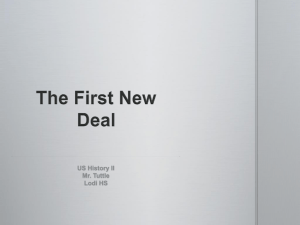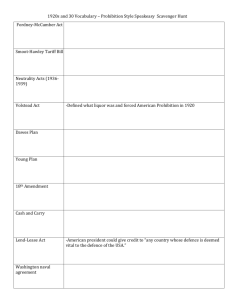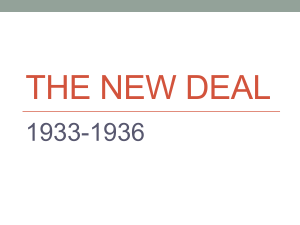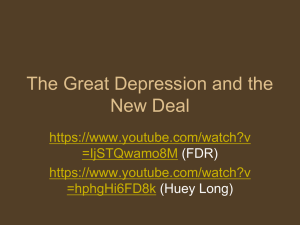The First “New Deal”
advertisement
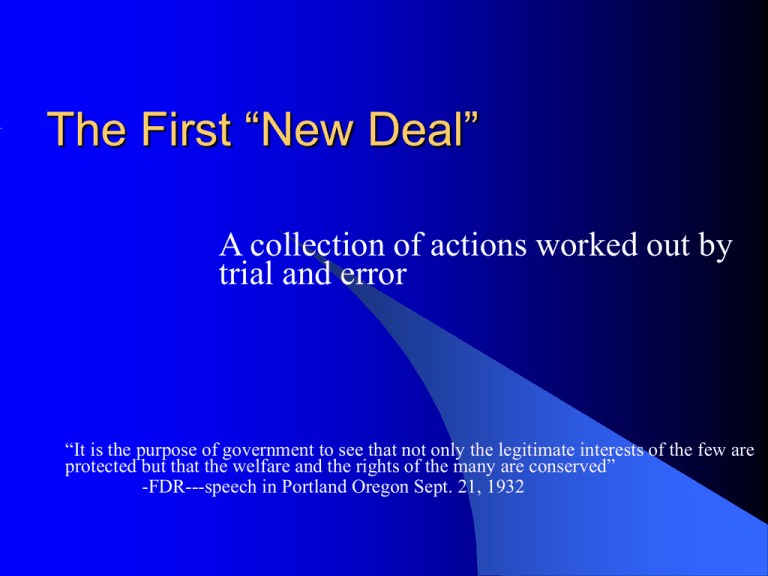
The First “New Deal” A collection of actions worked out by trial and error “It is the purpose of government to see that not only the legitimate interests of the few are protected but that the welfare and the rights of the many are conserved” -FDR---speech in Portland Oregon Sept. 21, 1932 I. The Philosophy of FDR & the New Deal A. Pragmatism 1. Experimentation B. Essential Conservatism 1. Design to bolter the capitalist system C. Humanitarian 1. elimination of social evils D. Personal Leadership 1. aggressive leadership a. “Fireside Chats” E. Probably the greatest command of practical politics since Lincoln II. Banking Crisis and Currency Legislation A. The Bank Run and Holidays B. FDR’s “Brain Trust” C. Emergency Banking Relief D. Other Banking Laws 1. Glass-Steagall Act [1933] FDIC E. Currency Changes 1.Removal of gold Standard a. Fort Knox b. Silver Purchase Act [1934] III. Other Emergency Legislation A. Economy Act B. End of Prohibition 1. * to raise revenue C. Securities 1. Securities Act of 1933 2. Honesty in the Stock Market IV. Relief A. PWA-Public Works Administration 1. Purpose was to provide loans to states for heavy industry-buildings etc B. Federal Emergency Relief Administration [FERA] 1. Make work policy C. Civilian Conservation Corps. [CCC] 1. work for transients Civilian Conservation Corps. V. Farm Legislation A. Purposes B. Agricultural Adjustment Act (Henry A. Wallace) 1. Subsidies VI. Industrial A. National Recovery Administration (NRA) 1. suspended anti-trust laws 2. Unions B. Rejection by Court 1. May 1935, Supreme Court declared NRA unconstitutional 2. Schechter Poultry Corp. vs. U.S. 3. * Court held that NRA was regulating intrastate and not merely interstate commerce Roosevelt and his Brain Child(ren) VII. Attacks on the First New Deal A. Right Wing 1. “Economic Royalist” B. Left Wing 1. Huey Long 2. Father Charles Coughlin 3. Francis Townsend Gov. Huey Long C. Election-FDR and New Deal would have to move left in search of recovery

